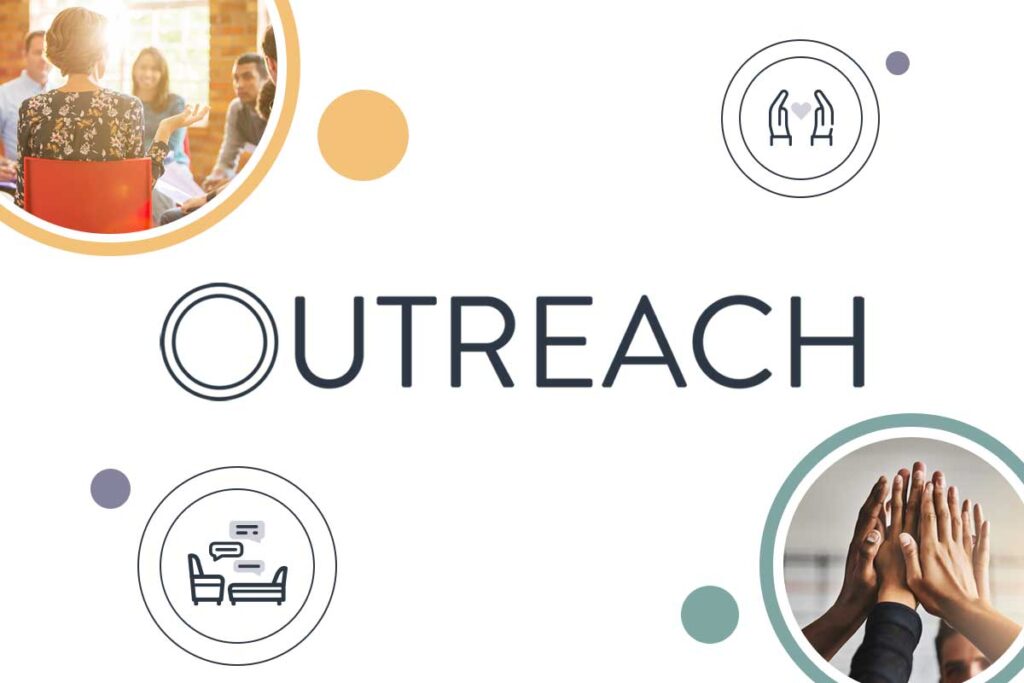But getting clean is only the beginning. From there, we aid our patients on a path of self-discovery to find the root cause of these problems. Why did they start using? Why did they keep using? Usually, people start using drugs because they are curious or because of peer pressure. As drug addiction progresses, the addict will continue to use drugs despite the negative effect it has on their life. At Outreach, a drug addiction treatment program for Heroin, Fentanyl, Opioid, and Painkiller, our goal to discover the unique cause of every patient’s drug addiction using mental health techniques. Only then can we facilitate true healing. Let’s discuss the top 5 root causes of drug addiction:
Mental health problems
Data from the National Alliance on Mental Illness shows that almost half of addicts are also suffering from mental health disorders, such as schizophrenia, bipolar disorder, depression, anxiety or others. More than 33% of alcoholics also live with mental illness. When a patient is being treated for both mental illness and drug addiction, we call this a “dual diagnosis.” Dual diagnosis, or co-occurring disorders, are more likely in men but can happen with women as well.
A person who is struggling with mental health problems is more likely to use drugs or alcohol to make themselves feel better. This process, called self-medication, only offers temporary relief. As time goes by, their tolerance to Heroin, Fentanyl, Opioid, and Painkillers increases, making it harder to get the same effect.
Social Circle or Peer Group
It is more likely that someone will experiment with alcohol or drugs if people in their social circle do it too. When this experimentation has a pleasurable effect, they keep doing it. Over time, this develops into an addiction.
Genetic Predilection
Children of drug addicts are at a high risk of suffering from drug addiction. This is because of genetics, which can affect mental health, moods and the structure of the brain. If your mother was addicted during pregnancy, that might also increase your likelihood to use a substance. If parents abused alcohol or drugs in front of your during childhood, they might have normalized this behavior.
Feelings of Worthlessness or Low self-esteem
People who feel sad, disconnected or suffer from low self-esteem might get a boost of confidence when they use drugs or drink alcohol. They might become dependent on those substances to feel better instead of confronting their demons. Drugs such as Heroin, Fentanyl, Opioids, and Painkillers abuse can numb anxiety, self-hatred and other negative feelings…at first. Unfortunately, the sadness will come back. When it returns, it will be accompanied by the pain of drug addiction as well.
Surviving Trauma
Many Americans associate the word “trauma” with war zones, terrorist attacks or similar events. The truth is, trauma can refer to a wide range of experiences, such as:
- a car accident
- divorce proceedings
- sexual assault
- childhood abuse
A history of traumatic experiences been linked to higher risks of mental illness, such as PTSD and depression. Yes, trauma is also linked to a higher risk of addictive behaviors.
Acknowledging the Sources of Addiction
Physical detox is rough, but emotional detox can be even more difficult. Finding personalized treatments that uncover the individual’s root cause of drug addiction is imperative to success. This can include discussing painful feelings, trauma-filled memories and difficult life choices and experiences. A trained professional can find healthy ways to approach these sensitive issues.
CTA: Get into a Drug Counseling Program Today
At Outreach Recovery, we know that drug addiction treatment must the heal core issues of addiction to make a lasting change. Using medication such as using Suboxone, Vivitrol, Sublocade, or Zuzsolv will also aid in recovery.
Get in touch with the friendly staff at Outreach Recovery and help yourself or a loved one rediscover a life filled with hope, peace and self-acceptance.

